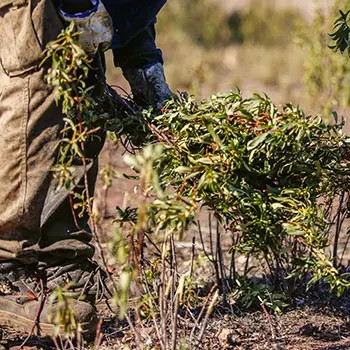
Innovative solutions targeting waste

While numerous initiatives across our sites contribute to progress towards our waste management targets, the waste reduction workshops programme – led by our sustainable operations waste workstream team – represents a particular effort and delivers convincing results.
The workshops are designed around three crucial steps. After an initial analysis of the current waste scenario and reflection on ongoing initiatives, workshop participants identify the major contributors to waste for disposal and look to understand the root causes. In a final step, the group brainstorms and prioritises solutions to produce a comprehensive roadmap that includes an actionable plan.
These workshops are strategically proposed to sites generating substantial waste for disposal. In 2023, we conducted multiple waste reduction workshops, and we would like to highlight two specific examples where sites have crafted impactful roadmaps, showcasing significant progress toward our global targets.
Achieving the target at our site in Spain
After carrying out a waste reduction workshop earlier in the year, the Aromasur site in Spain worked hard to implement their action plan. Now, they are able to celebrate a big success. By the end of 2023, the site had zero waste going to the landfill and zero waste being incinerated, achieving and even surpassing their site targets, thereby contributing to Givaudan’s waste goals.

Transitioning to an alternative waste management provider allowed the site to ensure that all waste is now recycled instead of going to landfill disposal. In tackling the site’s large amounts of waste from the cistus plant – used for the production of essential oils – the team identified a composting provider able to manage it at a cost effective way. Whereas it had previously been sent to an incinerator to be used as biofuel, this carbon is now being transformed into a nutrient-rich compost that will serve as a fertiliser for local crops. Together, the two projects mean that none of the site’s waste is going to disposal, but is rather being recycled or reused for other purposes.
Significant progress at our site in Egypt
The team at our Taste & Wellbeing site in Egypt used thorough analysis and waste mapping to pinpoint sludge and manufacturing inefficiencies as the areas in most need of attention. Subsequent initiatives targeted these issues and led to significant improvements. The installation of a new tank separating oil from wastewater, for example, resulted in more effective wastewater treatment, enhanced water quality and a decrease in the quantity of sludge. Innovative measures including a new filling cut-off unit effectively eliminated powder leakages, enhancing operational efficiency and decreasing powder loss. Finally, through a groundbreaking initiative with an external provider, we were able to convert all powder waste into biogas, thus transforming waste into energy. It is no longer waste for disposal, but will rather contribute to electricity production and agricultural fertiliser.
The team is now focused on implementing and ensuring the effectiveness of these initiatives and aims for 100% disposal efficiency for liquid waste. The effort is an important milestone in the site’s roadmap to achieving Givaudan’s waste targets.